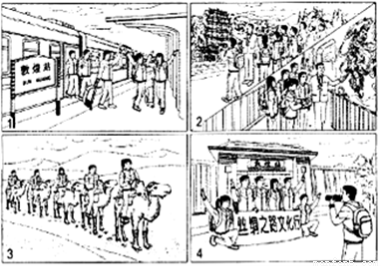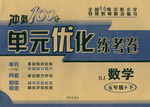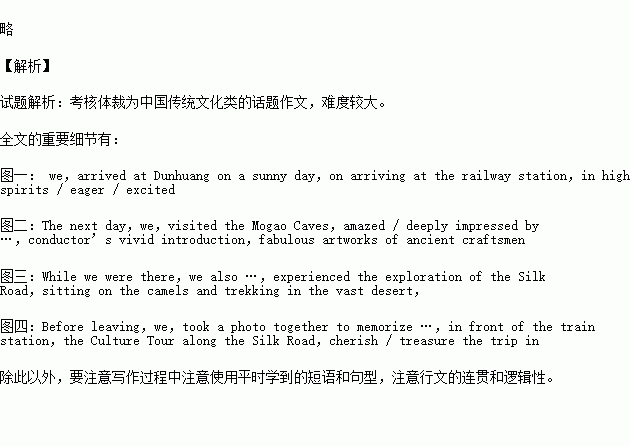题目内容
假设你是红星中学高三学生李华,请根据以下四幅图的先后顺序,介绍你在寒假期间参加“丝绸之路文化行”敦煌站的活动过程,并以“Silk Road Travel”
为题,给校刊“英语角”写一篇英文稿件。
注意:1.词数不少于60;
2.开头已给出,不计入总词数。
提示词:莫高窟the Mogao Caves

Silk Road Travel
This winter vacation I went to Dunhuang to explore the Silk Road with my classmates.
.
.
.
.
.
.
练习册系列答案
 冲刺100分单元优化练考卷系列答案
冲刺100分单元优化练考卷系列答案
相关题目


